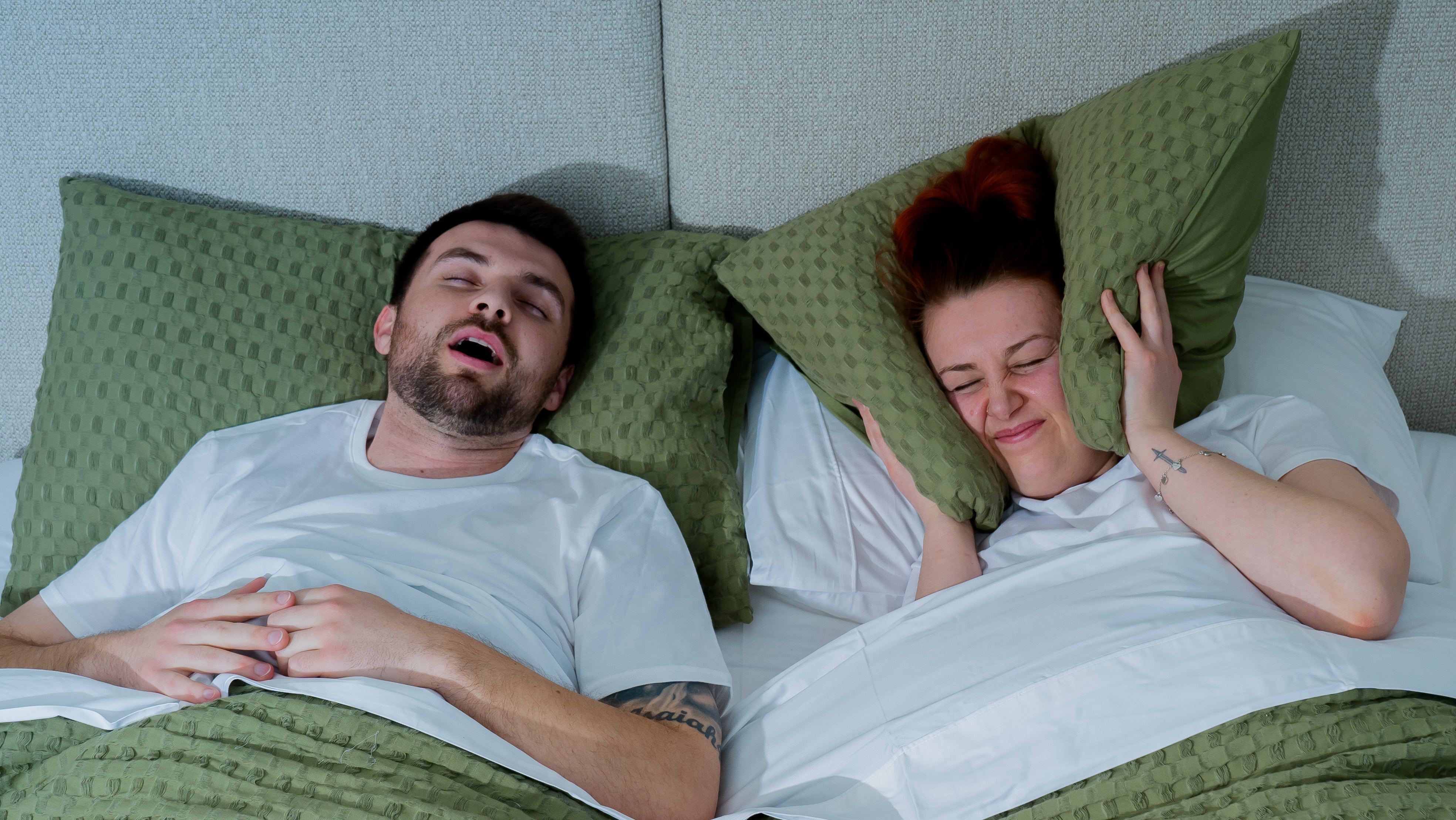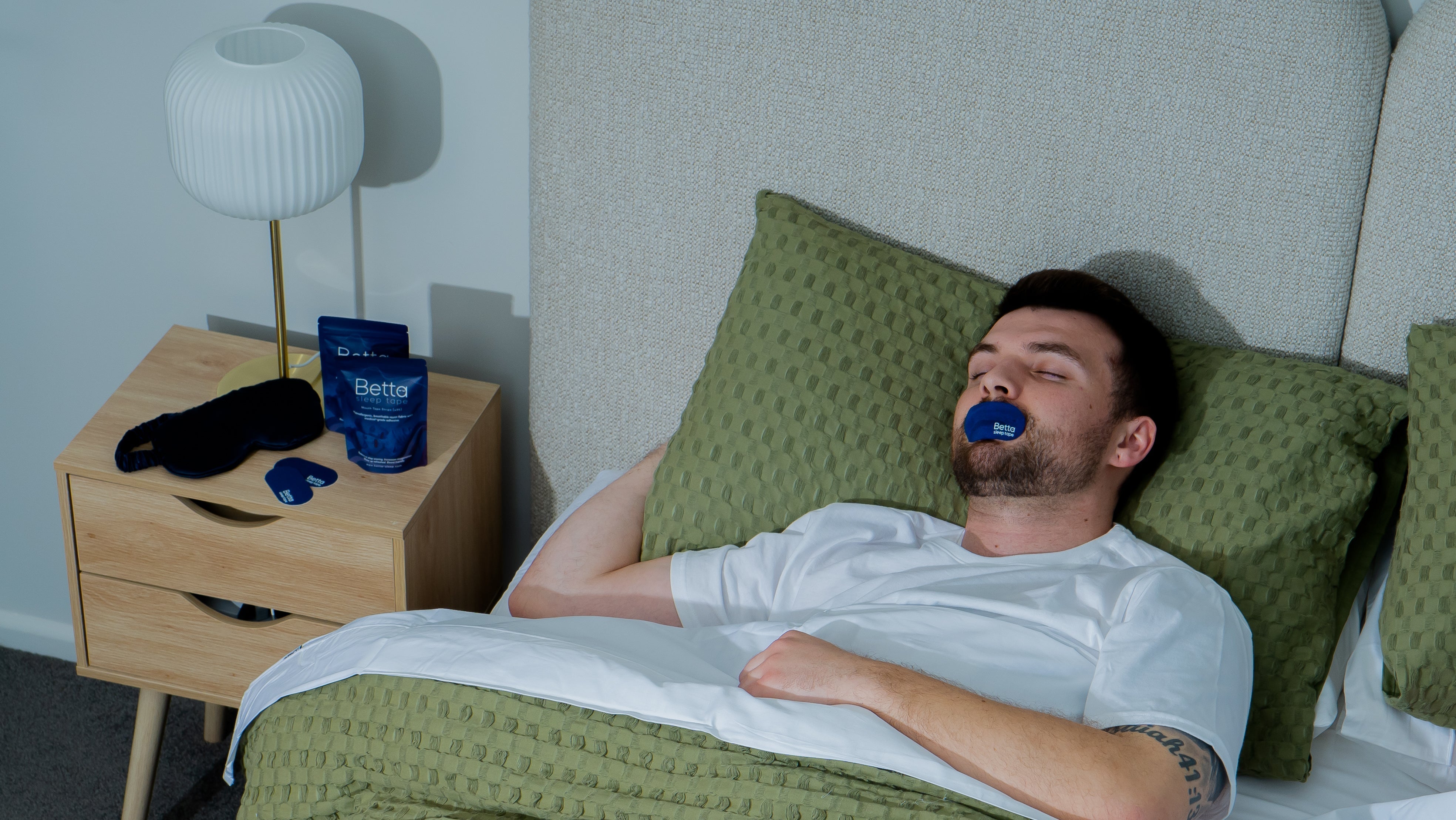Article: How To Stop Sleeping With Your Mouth Open

How To Stop Sleeping With Your Mouth Open
Sleeping with your mouth closed might be both easier... and harder than you think. The truth is, for someone who has been a mouth breather for any length of time, retraining yourself to breathe through your nose during sleep can be challenging — you're changing an often long-standing habit. For others, more complex factors are at play than just habit (which this article outlines). However, it can be done — and it’s extremely rewarding, given how much your quality of life depends on your sleep quality.
In this article, we’ll share the quickest and most effective way to stop breathing through your mouth during sleep: mouth taping.
Step 1: Stop Sleeping with Your Mouth Open
For most mouth breathers, it’s not that you can't breathe through your nose — you’ve just gotten used to doing it wrong. Mouth taping with a hypoallergenic, breathable tape like the Betta Sleep Mouth Tape helps retrain your body to sleep with a closed-mouth posture.
We’ve optimised our tape’s elasticity so that it gently encourages your mouth to stay closed while still allowing airflow if needed.
With consistent use, your nose starts doing what it was designed to do — and many physiological systems improve. Over time, you’ll be able to comfortably breathe through your nose all night, unassisted.
Step 2: Adjust Gradually to Mouth Tape
Most of our customers report reduced snoring and better sleep in their first week. For others, adapting to mouth taping and consistent nasal breathing may take a little longer.
Some people adjust within 3 nights. For others, it can take up to 30 — especially if snoring is severe, breathing volume is high, or if other factors affect nighttime breathing.
These factors might include: health conditions, medications, diet, stress, airway structure, sleep position, and even daily habits like speaking or exercising with your mouth open.
*Minute volume = air you breathe per minute. Normal is 4–6 litres. Snorers or people with anxiety, asthma, or sleep apnea may breathe up to 15L/min at night.
Quick Tips to Optimise Nasal Breathing with Mouth Tape
Here are 5 practical ways to make mouth taping more comfortable:
1. Start slow and increase gradually
- Wear the tape for 30 minutes before bed to get used to the sensation.
- Breathe gently through your nose before lying down.
- Try a small vertical strip at first, leaving gaps at the corners, before progressing to full coverage.
2. Clear your nasal passages before bed
- Blow your nose gently or use a neti pot to clear inflammation.
- Try nasal strips to help open your airway while you sleep.
3. Sleep position matters
- Use a slight pillow elevation to reduce breathing effort.
- Avoid sleeping on your back — it has the worst effect on airflow.
4. Stay hydrated and avoid alcohol at night
- Dehydration stresses the body and worsens breathing.
- Alcohol relaxes throat muscles, making airway collapse more likely.
- It also increases nighttime metabolism, breathing, and blood sugar — all of which should be low for optimal sleep.
5. Practice daytime nasal breathing
- Be mindful of nasal breathing during the day to reset your baseline pattern.
- Use mouth tape for short periods while reading or watching TV to build awareness.
- If you struggle, consult a registered Breathing Educator to assess your breathing pattern and uncover any deeper causes.
Keep going — and don’t be afraid to ask for help. Mouth taping is a behavioural change, and change takes time — especially when there are underlying factors. With the right support, you can get there.
Ready to Stop Mouth Breathing?
If mouth taping isn’t working or is taking longer than expected, it may be time to seek professional guidance. We recommend Breathing Educator and Buteyko Practitioner Nicky McLeod from The Breathing Clinic.
